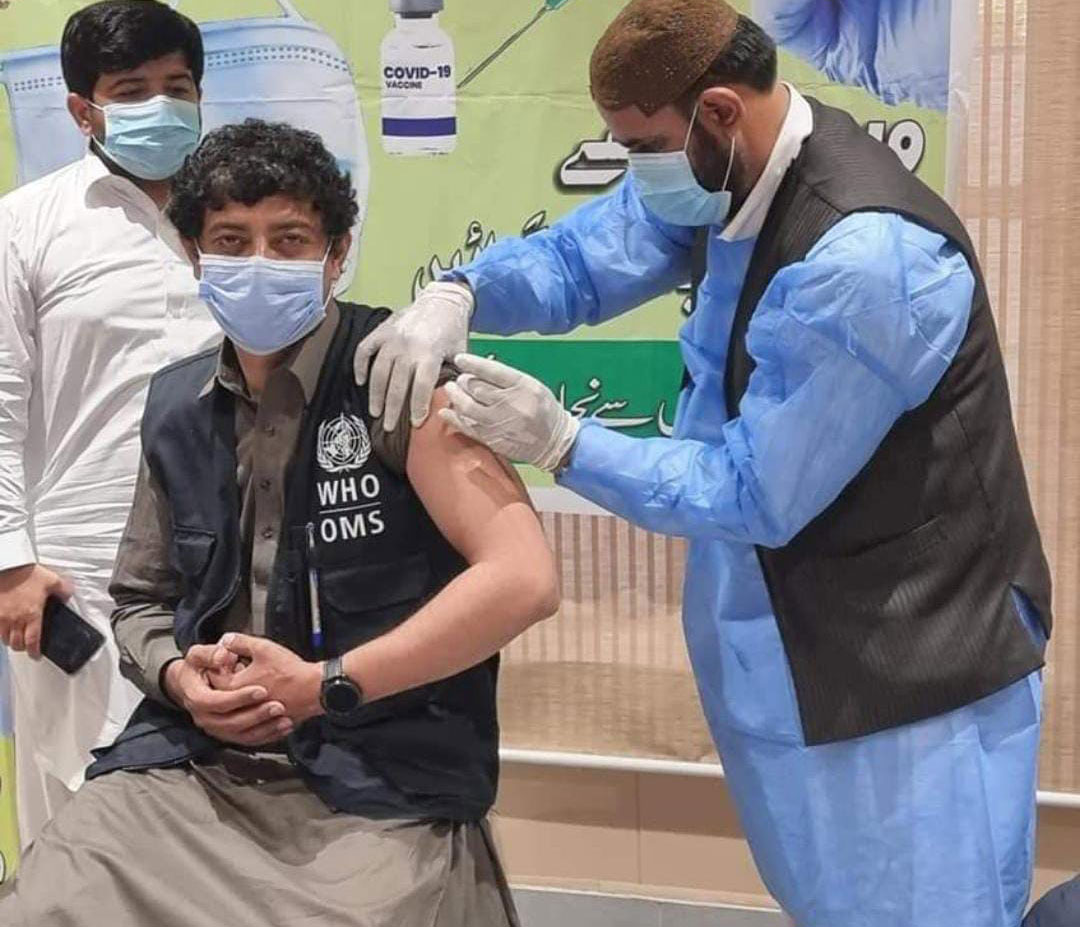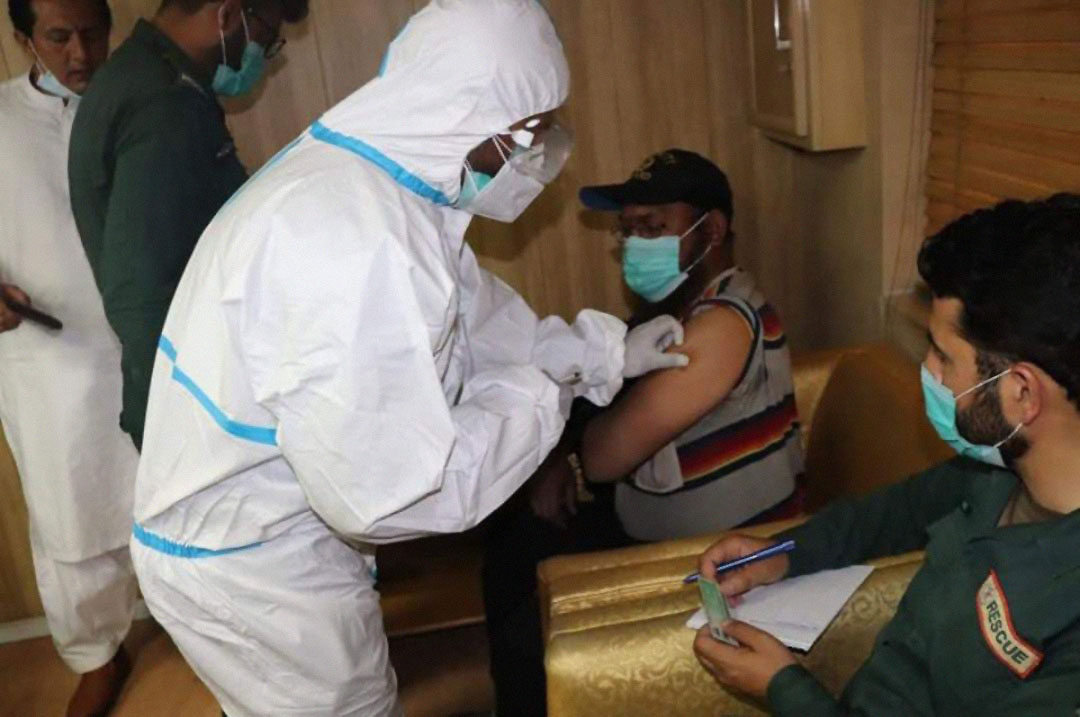Amid uncertainty, Pakistan is winning the battle against Omicron
Pakistan's government is working on a robust strategy to contain the spread of COVID-19 by rapidly scaling up immunisation in rural parts of the country.
- 25 February 2022
- 4 min read
- by Saadeqa Khan

On a sunny morning in December 2021, Ali Ahmad landed at Jinnah international airport in Karachi. Ali, who lives in the UK, was attending a family wedding in Pakistan after a two-day business trip to Dubai.
“Vaccine hesitancy may further go down as the vaccination side effects are minimal in Pakistan. We are ensuring several more targeted efforts to reach out to the groups with more stubborn attitudes or people who have lesser access to information on healthcare.”
By the time he got to Pakistan he was showing symptoms of COVID-19. He was one of the first cases in Pakistan of the highly-transmissible Omicron variant. Dozens of family members and relatives who had interacted with Ali also tested positive.
Genome sequencing showed a rising proportion of Omicron cases, indicating the start of a fifth wave of the pandemic in Pakistan. Most diagnosed cases had a travel history from Dubai, UK, US, Germany, Kenya, and Angola.
Authorities issued an alert all over the province and imposed a quick lockdown in Karachi to contain the variant. Educational institutions were also closed for one week in the city. Still, reported cases continued to rise and reached a peak at the end of January 2022.
Pakistan's battle against COVID-19
According to Mohammad Farhan, who works at the National Institute of Health (NIH), Pakistan, by the first week of February 2022, a total of 1,402,070 COVID-19 cases had been reported in Pakistan. Meanwhile, the government and healthcare bodies had successfully vaccinated 29,579,471 people around the country.
However, Pakistan has had a significant portion of its rural population unconcerned about the pandemic.
Have you read?
“The majority are entirely against immunisation in general,” says Rahim Bakhsh Jhokiyo, a healthcare worker from Larkana, Sindh.

Photo credit: Saadeqa Khan
The main cause of vaccine hesitancy in rural and urban parts of Pakistan's Sindh province is misinformation on the safety and effectiveness of different vaccines. There are also those that believe their robust immune systems can effectively resist different variants of COVID-19.
“I work at an immunisation centre in Larkana. My colleagues and I have a hard time convincing people about vaccination, in particular that the vaccine is not a cure for the disease but mainly for reducing the risk of developing severe illness,” says Jhokiyo.

Photo credit: Saadeqa Khan
Reticence to vaccines gives way to acceptance
According to an IPSOS survey conducted in March 2021, two out of five Pakistanis were not interested in immunisation drives. Even the free availability of vaccines wouldn’t persuade them to get vaccinated.
This started to change during the third wave in 2021, when COVID-19 cases increased and the government kickstarted grassroots awareness campaigns to overcome vaccine hesitancy.
Farhan says, “We at NIH review district-wide vaccination targets, and all possible efforts are up for discussion when it comes to achieving our vaccination goals.”
The various initiatives, such as direct interaction with local communities and one-on-one discussions with imams in mosques, have had a substantial positive impact on swaying the community’s behaviour and curtailing the spread of disease. These measures are bearing fruit, and a growing portion of the population is now getting vaccinated, including in rural areas.
The National Command and Operation Centre (NCOC) also started a rollout of booster shots at the end of January 2022. These free booster jabs were earlier available to only healthcare workers, citizens above age 50 and above-30 youngsters with comorbidities.
Mohammad Farhan says, “Vaccine hesitancy may further go down as the vaccination side effects are minimal in Pakistan. We are ensuring several more targeted efforts to reach out to the groups with more stubborn attitudes or people who have lesser access to information on healthcare.”
Link to IPSOS survey: https://www.ipsos.com/en-pk/ipsos-survey-vaccine-hesitancy-pakistan-9th-march-2021
More from Saadeqa Khan
Recommended for you








